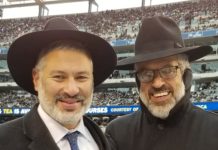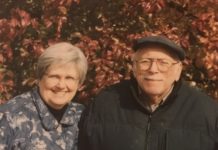“Leora” is a young, intelligent woman, whose husband had refused to give her a Gett for over 3 years. She became what is known as an “Agunah,” an abandoned woman chained to marriage by Jewish law.
After her husband became more and more of a danger to her and her newborn child, Leora applied for and received a restraining order to protect them from her as he had already been criminally convicted for another matter and was awaiting his sentence. His treatment of her did not improve and It was clear that she would need to file for divorce. However, three years later, her husband still refused to let her build a new life for herself and their son, by giving her the Gett. In addition, he still owed her child support for this extensive period.
When the Rackman Center became involved in this case, the Beit Din pressured the husband to give Leora a divorce by using sanctions against him. As part of the holistic service at the Center, Leora also received free support from a mentor through their new volunteer program, to help her through the difficult divorce process.
It took a couple of frustrating months. Eventually, Leora got her Gett. This young woman can now start her life again. “The mentoring support I received helped to get me and my son through this ordeal and gave me a more positive outlook for the future,” she says.
Leora’s case is one of many success stories through the Rackman Center. In 2017, some 507 women received free legal advice on their helpline. 45 woman received free legal representation in family and rabbinical courts. The Center researched and submitted 11 bills to the Israeli Knesset relating to women’s rights.
Established in 2001 at Bar-Ilan University, with the goal of improving women’s status and bringing an end to gender inequality in Israeli society, The Rackman Center is now proud to be the forefront organization of legal and social change for women in Jewish family law in Israel.
The Rackman Center is a research institution, think tank and legal aid clinic. The founding director of the center is Ruth Halperin-Kaddari. She is vice chair of the United Nations Committee on the Elimination of Discrimination against Women, and has served on the committee since 2006. She received the U.S. Secretary of State’s International Women of Courage Award in 2007 for her work on international women’s rights.
The Center is named after Rabbi Emanuel Rackman (1910 – 2008). He was an American Orthodox Rabbi, who held pulpits in major congregations and helped draw attention to the plight of Refuseniks in the then-Soviet Union and attempted to resolve the dilemma of the Agunah.
“Maayan” is another woman whose life was profoundly impacted by the work of the Rackman Center. In 2014, Maayan and her husband started divorce proceedings in Israel. Sadly, before her husband delivered a Gett, he fled to Canada and “disappeared.” Maayan was frozen in the marriage, and without child support. To make matters worse, the mother of her almost-ex-husband filed a lawsuit against Maayan, accusing her of child-abuse and demanding visitation rights.
With nowhere else to turn, Maayan called the helpline at the Rackman Center.
As soon as the Center took this case, they set out on a worldwide search to locate the husband and complete the divorce. They persisted, utilized their specific expertise, and succeeded. They got Maayan her Gett, and negotiated fair visitation for the grandmother once every two weeks on condition that she never bad-mouth Maayan to her children.
Believing in a dual-track approach for bringing about mobilization and social change, the Rackman Center works from both within and outside the religious world, to change the Jewish legal system using its own internal tools and methodology. At the same time they enable each citizen of Israel a choice of marriage ceremony which suits their beliefs.
The Rackman Center’s dual-track approach continues when they cooperate with the government to promote policy reforms, and at the same time make an independent stand where appropriate.
The work that they do affects agents of change of all levels, starting from legislatures and policy-makers, civil and rabbinical judicatures, lawyers, welfare workers, and other divorce professionals, through law students, who are the future of this profession, to the individual women and children who are directly assisted by the Center.
The Rackman Center’s Legal Aid Helpline provides free legal advice to all women who call with family law related questions or concerns. They deal with varied requests from callers, with some of them at the initial stages of the divorce process and some at an advanced stage in the legal process.







